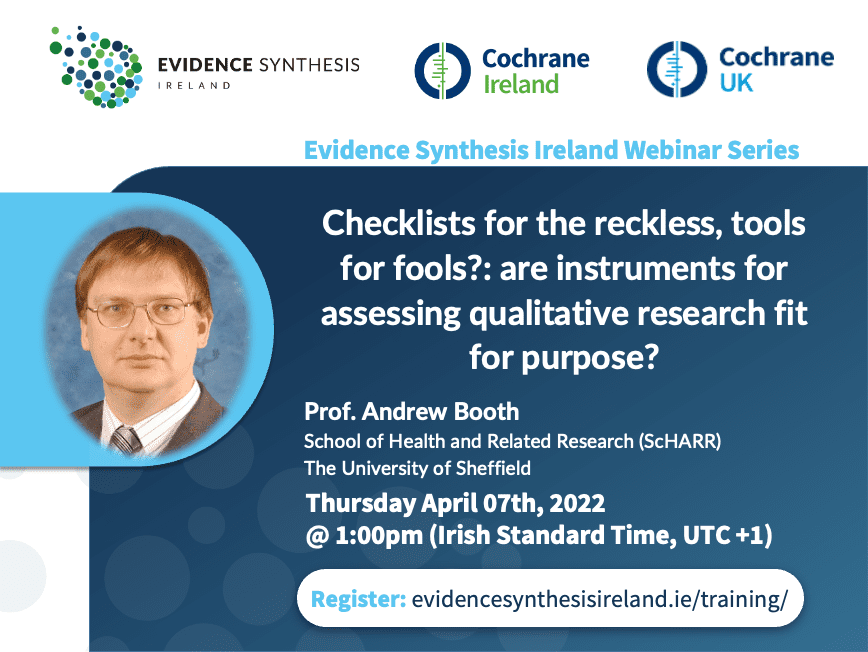Researchers trying to assess the methodological quality of qualitative research face a bewildering choice from over 100 available tools and checklists. When Professor Booth worked with colleagues to examine the range of approaches available they found that not only is the value of appraising qualitative research contested but also that confusion persists concerning whether tools assess study quality or reporting quality. Is the concept of “risk of bias” even valid within a qualitative paradigm? This webinar combined practical guidance on how to choose checklists with discussion on the usefulness of concepts such as risk to rigour and methodological limitations. It concluded by looking forward to future approaches and by reminding the audience that choice of a checklist for qualitative research represents a precarious balancing act between the tool, the study and the reader.
Professor Andrew Booth, Professor in Evidence Synthesis at the School of Health and Related Research (ScHARR), University of Sheffield, has been a systematic review methodologist for almost 30 years. He specializes in qualitative, mixed methods, realist and rapid reviews. Andrew has conducted published international QES in maternal care topics such as postnatal depression and attitudes to facility-based delivery. Andrew is a co-developer of Best Fit Framework Synthesis, one of the widely used methods of qualitative evidence synthesis. He is a technical consultant to the WHO Health Evidence Network evidence reviews. Andrew has been a co-convenor of the Cochrane Qualitative and Implementation Methods Group (CQIMG) for over fifteen years and is a member of the GRADE-CERQual core development team. He has co-authored the Cochrane Handbook chapter on Qualitative Evidence. Together with colleagues in ScHARR he has been running an annual course on qualitative synthesis for over a decade.





